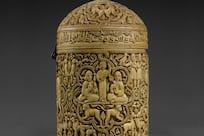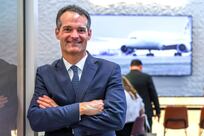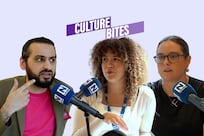A newly agreed deal allowing companies in Ras Al Khaimah to have disputes heard in English at Dubai International Financial Centre’s courts will give investors greater confidence in the Emirate’s trading environment, according to Sheikh Saud Bin Saqr Al Qasimi, the ruler of the emirate.
Speaking on Tuesday at the Ras Al Khaimah Finance and Investment Forum, Sheikh Saud said: “We understand that we live today in a world where not everybody speaks Arabic language. We’re very proud of our language, but we are human beings. Arabs are known for their hospitality.
“What we want to do is allow businesses, people who live here, to feel comfortable that they can speak as well in English. What we want is to say [is], we in Ras Al Khaimah want people to feel safe.”
He said one of the key elements of a legal system is that it “allows us to resolve our disputes in a civilised manner … For that to happen, you need to have the confidence of two parties in the quality of justice. So we’ve taken that measure to allow the global investor to see that in RAK we have done that step.”
A memorandum of understanding signed this week allows for judgements issued by the DIFC Courts to be directly enforced by Ras Al Khaimah’s courts, provided that the contracts originally signed allows partners to opt in to DIFC Court jurisdictions.
The agreement covers contracts entered into by RAK government bodies, companies, investors and individuals who can choose to have disputes settled through either DIFC’s court or its arbitration centre.
A further deal announced on Tuesday allows for individuals based in Ras Al Khaimah to have wills registered through DIFC’s Wills and Probate service enacted by local courts in Ras Al Khaimah, and DIFC Courts will train RAK Courts staff.
Ahmed Mohammed Al Khatri, the chairman of RAK Courts Department, said: “As more people are choosing to set up businesses, work and live in Ras Al Khaimah, using the successful DIFC Wills and Probate Registry system will increase their confidence and commitment, allowing them to put down roots and build happy lives and thriving businesses.”
Speaking at the same forum on the prospects for Ras Al Khaimah’s economy, Waleed Mohsin, the executive director of global investment research at Goldman Sachs, said: “We think it’s a very well-balanced economy with a strong core.”
He said the emirate’s economy had outgrown the rest of the UAE in recent years, with average GDP growth of 4 per cent per annum. He said it was also diversified, with no sector making up more than 25 per cent of total GDP, and oil representing less than 5 per cent.
Mr Mohsin highlighted manufacturing, tourism, logistics and real estate as its four key growth sectors and praised the fact that 50 per cent of its GDP was in companies listed on the Abu Dhabi Securities Exchange.
He said that although “there is clearly a challenge” for Ras Al Khaimah to continue its growth rates, there were a number of relatively untapped opportunities. For instance, most of the development of RAK’s manufacturing industry has been by local and GCC investors. “Clearly, the opportunity is to attract more foreign investment within this sector,” said Mr Mohsin.
mfahy@thenational.ae
Follow The National's Business section on Twitter





